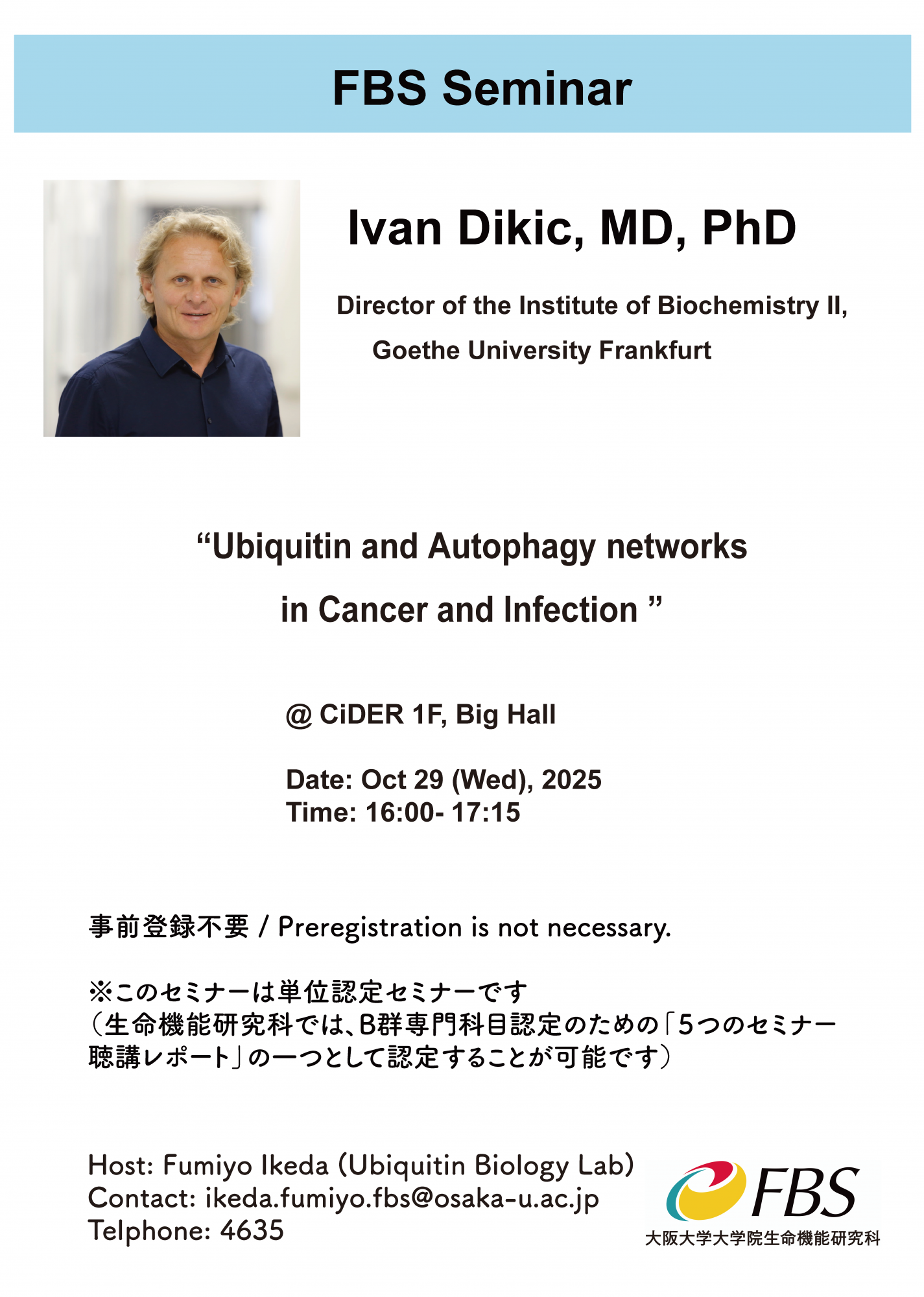Research seminars Ubiquitin and Autophagy networks in Cancer and Infection
| Seminar or Lecture |
Ivan Dikic [Director of the Institute of Biochemistry II, Goethe University Frankfurt] |
|---|---|
| Date and Time | 29 Oct. 2025 (Wed), 16:00-17:15 |
| Place | 1F 101 Big Hall, CiDER, The University of Osaka |
| Language | English |
| Contact |
Fumiyo Ikeda |
The ubiquitination of proteins plays a crucial role in regulating key cellular processes, including protein degradation, endocytosis, translation, innate immunity, and DNA repair. Ubiquitin networks are also essential for maintaining cellular homeostasis by clearing harmful protein aggregates, damaged organelles, and microbes through the autophagy pathway.
In this talk, I will highlight recent discoveries on the interplay between ubiquitination and autophagy in response to proteotoxic stress via a deficiency of USP39, a component of the snRNP splicing complex. We have developed a novel chemical method to introduce errors into splicing cascade leading to a rapid cancer cell death. Additionally, I will introduce PROXIDRUGS, a cluster of academic and commercial partners dedicated to proximity-inducing drug discovery and preclinical development. A key goal is to design novel Proxidrugs that drive the ubiquitin-dependent degradation of disease-relevant targets, which in turn can be further developed into novel anti-cancer or anti-microbial therapeutics.
Biosketch
Ivan Dikic is a leading expert in the fields of ubiquitin biology and autophagy research. He is the Director of the Institute of Biochemistry II at Goethe University Frankfurt and a Fellow of the Max Planck Institute for Biophysics. His scientific interests focus on the molecular principles of ubiquitination and autophagy and their pathological alterations that lead to the development of human diseases such as cancer, neurodegeneration and infection. Recent research from his group has expanded into ER-phagy, regulation of splicing, and the development of proximity-induced drug modalities, including PROTACs and molecular glues. He is an elected member of EMBO, Leopoldina German Academy, and American Academy of Arts and Sciences.
References
(selected from the most recent)
- 2024 Science PMID: 39541449
- 2024 Cell PMID: 39481378
- 2023 Nature PMID: 37225996
- 2023 NCB PMID:37024685

